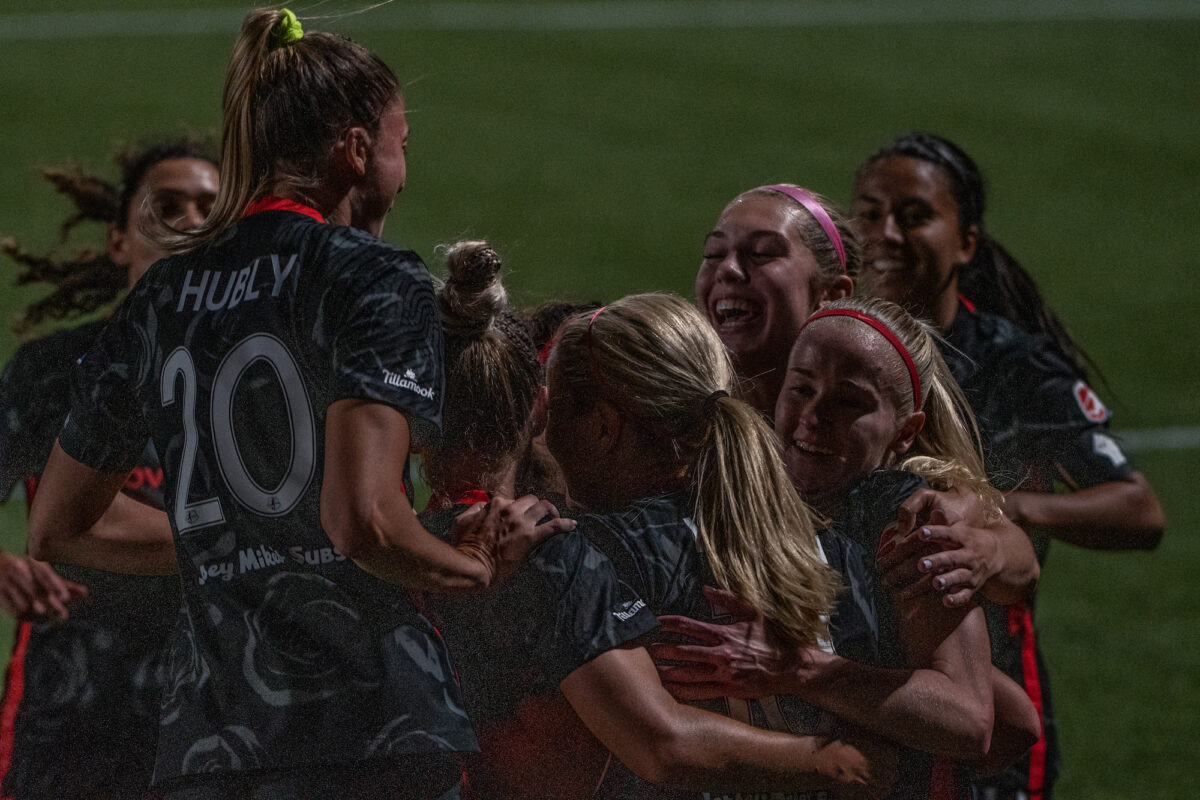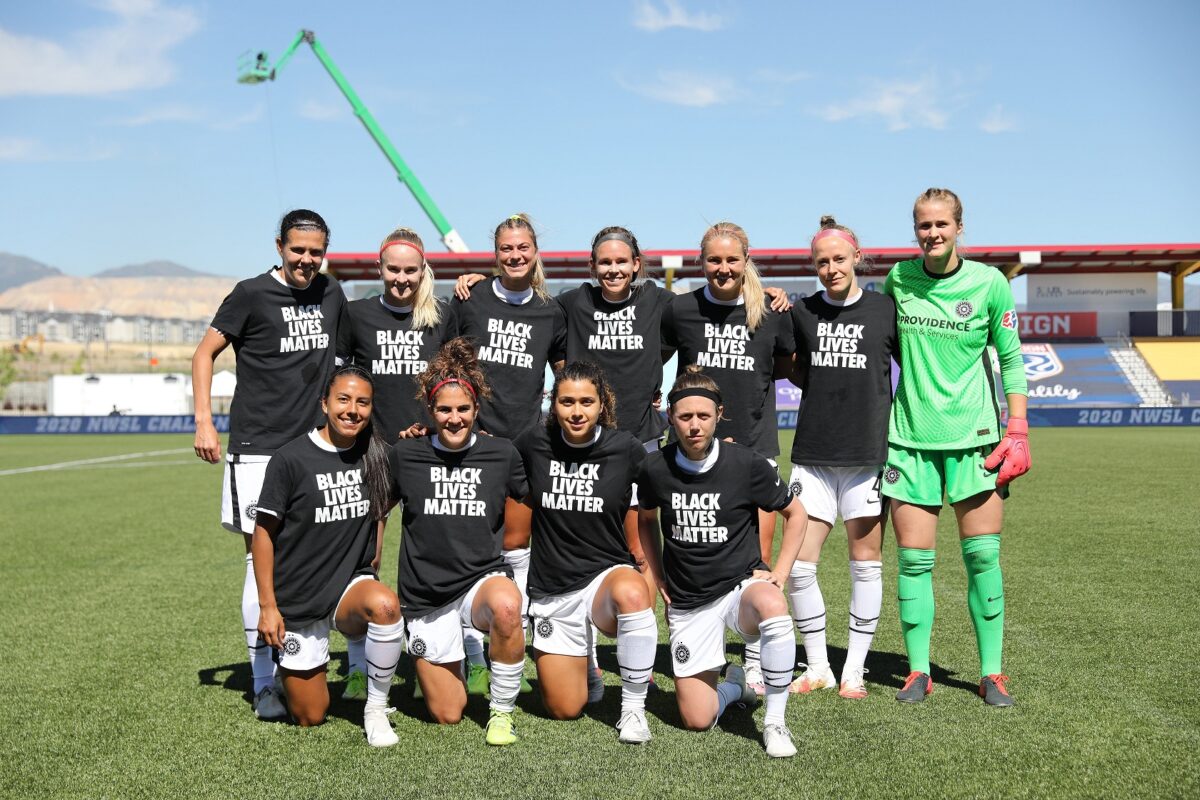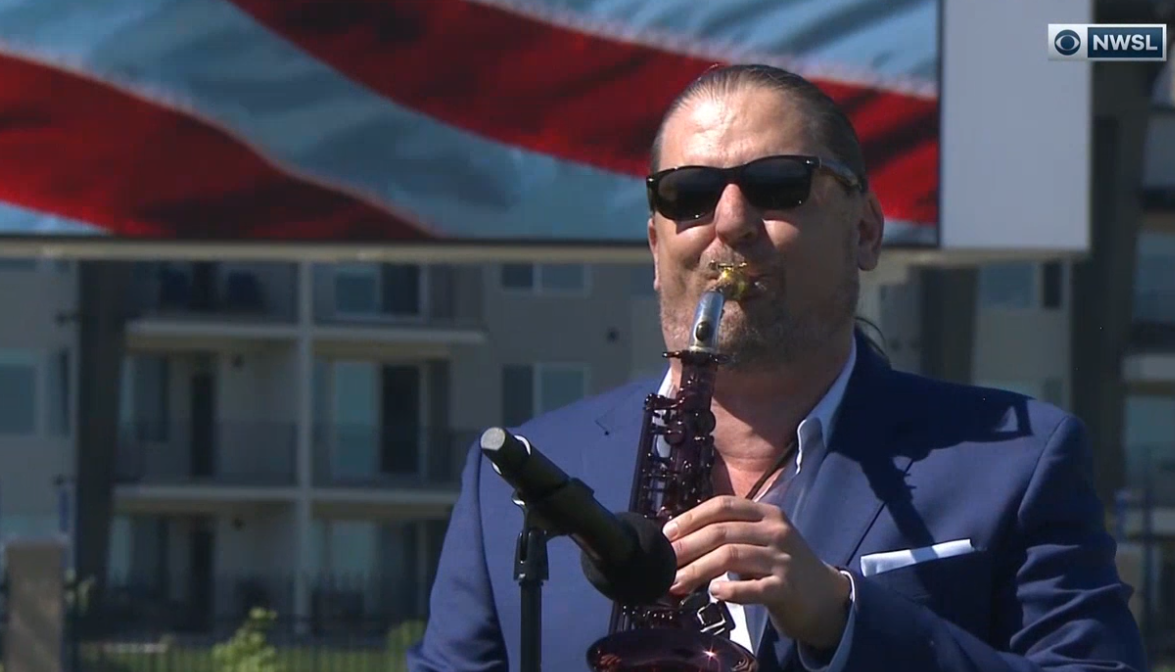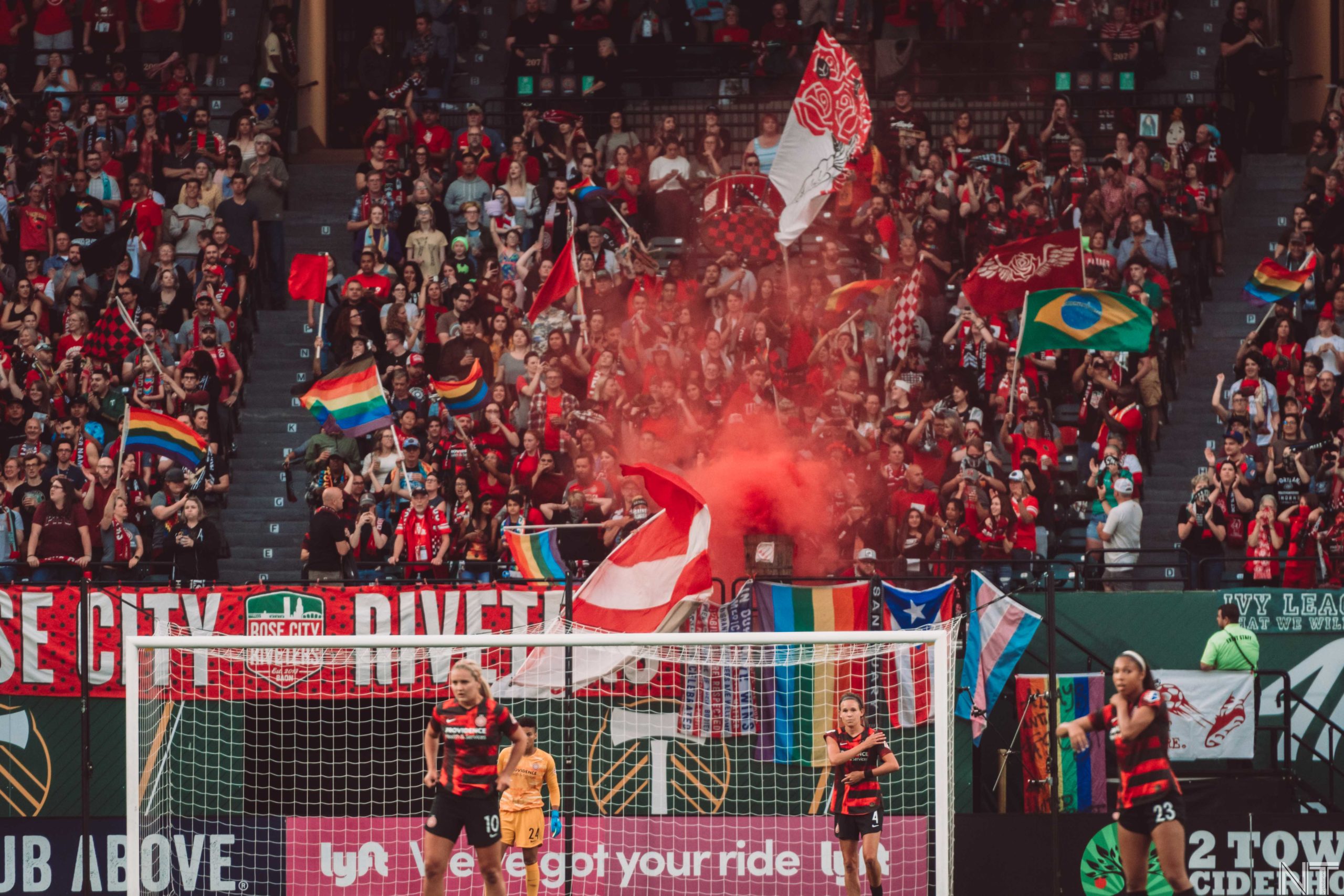The soccer has come and gone for the Thorns, and for the rest of us, all that’s left to do is stare into the abyss and hope everything else might get slightly less bad at some point.
But first, let’s reflect on some of the big-picture takeaways from Portland’s Challenge Cup experience.
A War of Attrition
No summary of Portland’s Challenge Cup experience would be complete without noting the single overarching theme of the whole tournament, for all the teams involved, which is that the whole thing was very exhausting. The Thorns started the tournament without AD Franch and Sophia Smith, immediately lost Becky Sauerbrunn, and hung on to Lindsey Horan until she sat down in a defeated-looking heap ten minutes after the half in the quarterfinal. I do not know how Raquel Rodríguez or the 37-year-old Christine Sinclair were still ambulatory by the end of the tournament.
More striking than the impact on any particular player, though, was how fatigue shaped outcomes for Portland twice: first when they took down a North Carolina team that had started basically the same lineup throughout the preliminary round, and again when they limped out of that game and into their semifinal against Houston. Keeping up with even a tired Courage side is an extraordinary athletic feat, and the Thorns paid for it.
Diamonds Are(n’t) Forever
Portland played a new formation in this tournament, a 4-4-2 diamond. This made sense for the players they had available: with Tobin Heath sitting out and Midge Purce and Hayley Raso long gone, the Thorns were left with no real wide attacking threats. They did, however, have an excess of quality central midfielders of various shapes and sizes: Horan and Sinclair, of course, plus Rodríguez, Angela Salem, Celeste Boureille, Gabby Seiler, and Emily Ogle.
What was striking about this particular diamond was where the width came from—namely, in large part, from Rodríguez and Horan. In the team’s first outing against North Carolina, that was largely visible as both of them provided defensive muscle out wide, putting early pressure on runs by Jaelene Daniels or Lynn Williams to ease some of the burden off Portland’s outside backs.
That system is an interesting interpretation of what’s usually thought of as quite a narrow formation, and it went a long way toward containing the Courage; what looked weirder was when Horan and Rodríguez attacked from wide areas. The intent here seems to be to keep Sinclair (mostly) central and have her connect play both into the box and to whoever’s out wide, whether that’s Horan, Rodríguez, or one of the forwards. The problem is that lacking both players like Heath or Raso, who can stretch defenses out of shape and beat wide defenders one on one, and a reliable target striker, teams were able to focus their pressure on Sinclair and force her into sideways passes. What the Thorns were left with was a lot of very hopeful crosses and no one to put on the end of them.
Of course, attacking from out wide paid off one very important time, when Rodríguez sent a pass under Denise O’Sullivan to Morgan Weaver, who bodied past her mark to score the go-ahead goal. This is to say the system kind of worked. You could see how it was supposed to work in that moment. But they just couldn’t generate enough chances this way. Weaver, who looks extremely promising but still raw, can’t reliably beat defenders at this level; more important, it’s not the best use of Horan, Rodríguez, or especially Sinclair, who looked stranded a lot of the time.
In short, this was an interesting experiment while it lasted, and it helped the team find some notable success against North Carolina, but it would be hard to justify for a Thorns roster that included Heath, Sophia Smith, and one or more Rumored International Forwards.
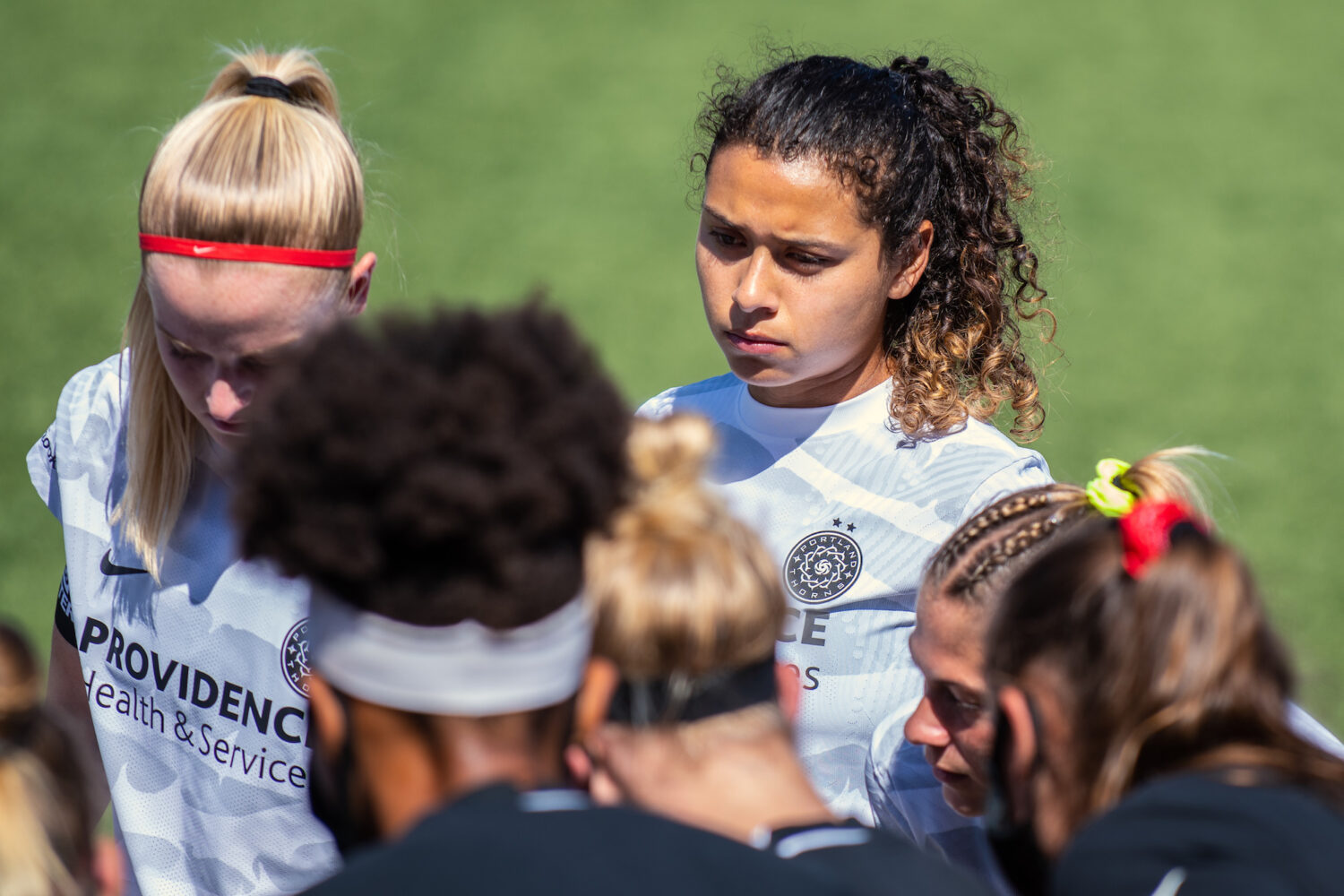
Some Success Stories
The pandemic has meant that the Thorns, like several other NWSL teams, never got the chance to finish building their roster—after having purged half of last year’s starting lineup, no less. Kadidiatou Diani, rumored to be headed to Portland for $445,000 a year, would (assuming she could have adapted to the physicality and competitiveness of the NWSL) have provided exactly the kind of creativity out wide the Thorns are currently lacking. Making matters worse, Ellie Carpenter, another key piece both defensively and going forward—and once thought to be the only Aussie who would survive the exodus—left shortly before the tournament.
On the other hand, the players Portland did acquire are all excellent additions. Rodríguez, arguably the most important piece, is the midfield partner to Horan—a second box-to-box player with the right combination of creativity, work rate, and defensive grit—that Parsons has been looking for since the 2017 season ended. Weaver is physically strong enough to body defenders and gutsy enough to take them on the dribble; with a little more experience under her belt, she looks like she could turn into the mythical goal-scoring forward Portland has lacked for years.
But the team made the most progress on the defensive side. Surprisingly for a team that picked up Becky Sauerbrunn in the offseason, that progress doesn’t just boil down to new signings. Christen Westphal was excellent, but the revelation this tournament was Kelli Hubly, who impressed at right back in the opener, then stepped up to fill the vacancy left by the injured Sauerbrunn centrally. She saved the Thorns more than once, and her willingness to step to opposing forwards made her a great partner for the more conservative Emily Menges. Finally, sitting deep in midfield, the team has an absolute bulldog in Salem, who’s been sidelined by injury for a good chunk of her time with the Thorns. All in all, the roster still looks incomplete, but it’s deeper than it looked heading into the tournament.
“The Culture”
If you ask anyone on the team, they’ll likely say their biggest achievement this month was a return to the Thorns’ vaunted team culture, something both the players and Parsons say had slipped by the end of 2019. For all the talent on any given Thorns roster, this is an attitude-first coaching staff, and whether or not players have a certain personality and work ethic often guides both who gets signed and who gets traded away.
Parsons’ focus on building a team-first, relentlessly hard-working culture, and the unexpected results it sometimes produces, is underappreciated—at least outside Portland. This is a team that often excels when the odds are stacked against them, as they did during the World Cup last year, or during the Olympics in 2016. Even when they won the championship in 2017, they were using a (different) formation they had adopted to make up for Heath’s absence earlier that season, and they gritted and ground and, frankly, punched their way past the top team in the league.
They couldn’t figure out how to win that way this time around; the basic concept was a little too makeshift and the bench a little too shallow as the tournament wore on and injuries took out player after player. But if a strong team culture is the foundational variable Parsons and his players say it is, this is a significant step in the right direction.
The state of the culture is basically something we have to take the team’s word for, especially at a moment when no one is allowed to even speak to them in person. But that, plus an organized defense, have been the foundation for Portland’s success in the past, and if they stay focused on those two things, they’re in good shape looking toward 2021.
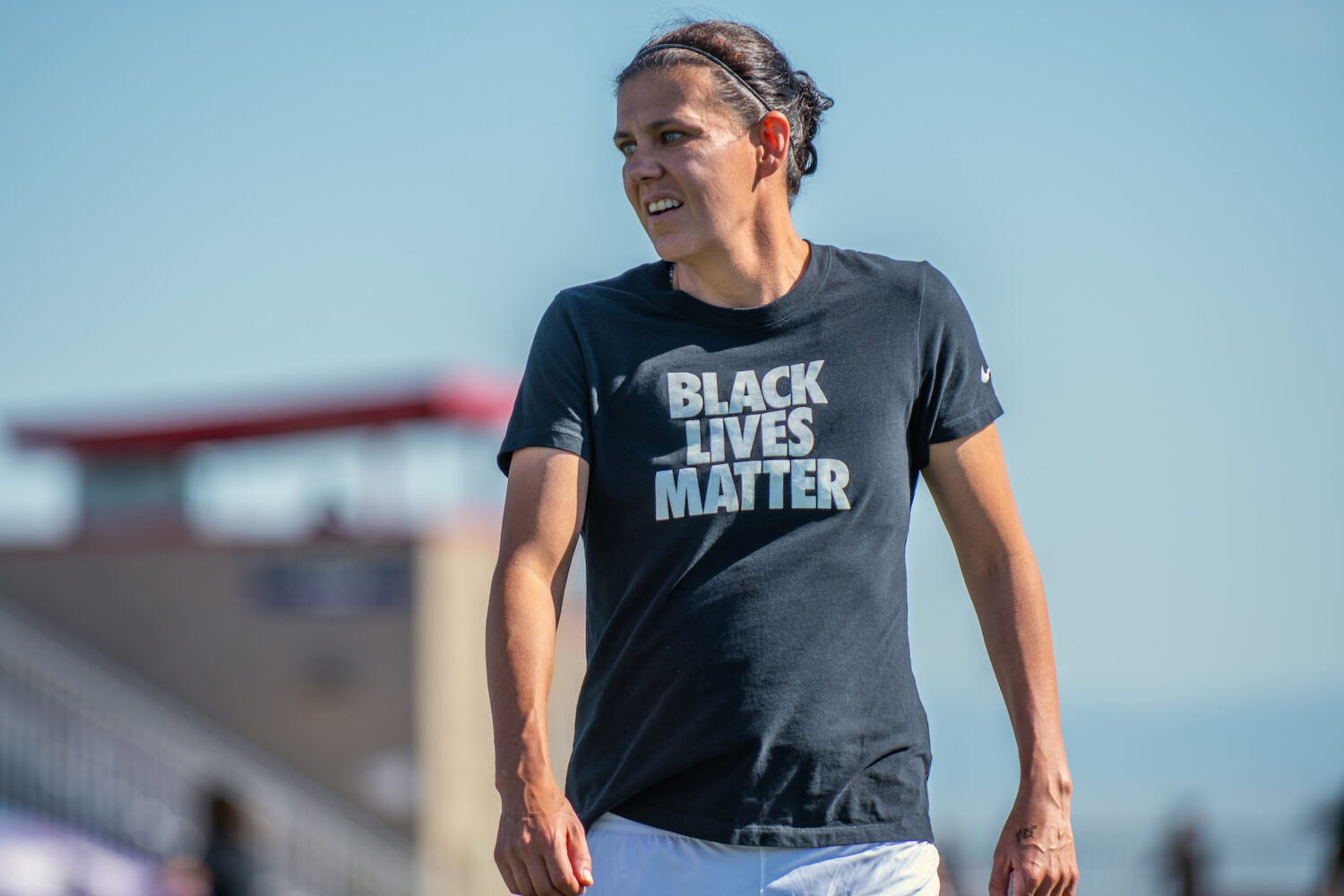
And Beyond
That’s the good news. The other news is that a wholesale rebuild is still looming for the Thorns, probably sooner rather than later. They have to expect to take some losses with two expansion teams entering, and then, on some unknown date, comes the real inevitable truth: Christine Sinclair cannot play professional soccer forever. It’s said that mileage matters more than years, so this truncated “season” may wind up extending her career, but she’s nonetheless nearing 40.
At that point, it’s anyone’s guess what direction this team goes in. They’ve built their midfield around Sinclair and Horan for the last five years, and one thing that became clear in Utah is that while Sinclair is still quality, she also needs certain types of players around her to succeed. When she departs, the club changes completely, the way things do when realities so long-lasting they feel like laws of physics change. The only certainty seems to be that the Thorns become, fully, Horan’s club. Beyond that? We’ll have to wait and see.

